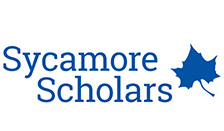Keywords
Policy and procedure development, risk management and mitigation, professional standards
Abstract
A concussion return-to-participation protocol specific to equestrian is critical in the safe return of athletes to their respective discipline. When the care of the hunter/jumper equestrian teams became the responsibility of the Sports Medicine staff at Sweet Briar College, a return-to-participation concussion management policy was needed to ensure the safety of the equestrian student-athletes. A quality-improvement project focusing on the development of a “Return-to-Ride” protocol was started in the fall semester of 2016. The Sports Medicine staff collaborated with the Sweet Briar College riding center to create and ensure compliance of the protocol. The intended aim of developing this protocol was to create a guideline for concussion management of the equestrian student-athlete that would standardize care across sports and between providers. At the time of this quality improvement cycle, no specific concussion management protocol had been adopted or approved for any discipline of equestrian. Due to the differences between equestrian sports, changes would be need to be made in order to best serve the athlete(s) affected. Using a traditional five-day return-to-play program as an example, the Return-to-Ride (RTR) protocol is seven days of gradual riding for equestrian athletes. This protocol accounts for the specific physical demands and vestibular disruptions associated with equestrian. This Plan, Do, Study, Act (PDSA) cycle was conducted during the fall semester of 2016 to the fall semester of 2019. The purpose of this PDSA cycle was to provide athletic trainers and other healthcare providers with insight on the development and outcomes of a concussion return to participation protocol for equestrian athletes.
Recommended Citation
Serrano, Devon and Wu, Velyn
(2020)
"Implementation of a Novel Return-to-Ride Concussion Management Policy for Collegiate Hunter/Jumper Equestrian Athletes,"
Clinical Practice in Athletic Training: Vol. 3:
Iss.
2, Article 4.
Available at:
https://scholars.indianastate.edu/clinat/vol3/iss2/4

